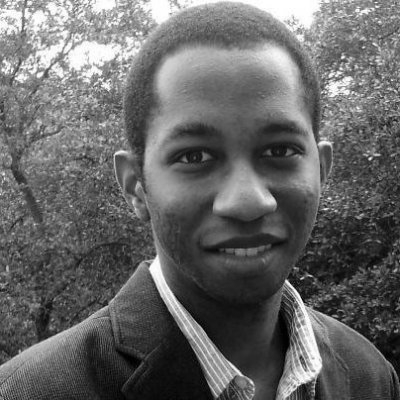"Israel is a cyber power. Our goal is to further develop our capabilities in this field which is essential to the security and future of Israel."
– Benjamin Netanyahu, 2015
The declaration, delivered as the cabinet approved an Israel National Cyber Authority, distilled decades of work that already put the country at the center of global encryption research. By the mid-2010s Israeli scientists had laid core mathematical foundations, investors had bankrolled commercial spin-outs and veterans of a secretive signals-intelligence unit were exporting hard-won know-how.Analysts at the OECD note that no other high-income economy matches Israel’s ratio of venture capital to gross domestic product, a metric driven in large part by cybersecurity deals.
Israel’s Cryptography Journey
- Adi Shamir’s RSA work earned a 2002 Turing Award and anchored modern encryption.
- Fiat–Shamir and later schemes helped transform interactive identification into practical cryptographic tools.
- The 1993 Yozma program ignited a venture boom that funded early security start-ups.
- IDF Unit 8200 alumni seeded dozens of civilian cyber firms with deep protocol skills.
- A 2015 National Cyber Authority move signaled long-term state commitment to crypto R&D
- Post-quantum and blockchain research keeps Israeli labs central to next-wave security
Academic Foundations: From RSA to Zero-Knowledge
Israel’s cryptographic story begins with Adi Shamir co-inventing the RSA algorithm in 1977. The public-key method let two computers exchange secrets without first swapping a password, forming the backbone of secure web browsing. The Association for Computing Machinery honored the work with its 2002 Turing Award, as recorded by ACM.
Within a decade, Shamir and Amos Fiat introduced the heuristic now called the Fiat–Shamir transformation. Their 1987 paper in the CRYPTO ’86 proceedings, available on SpringerLink, showed how to collapse an interactive identity check into a single signed message.
A follow-up with Uriel Feige introduced a practical zero-knowledge proof of identity, proving users could demonstrate who they were without revealing anything else. That insight pushed cryptography beyond secrecy toward privacy, opening paths to anonymous authentication, digital cash and, much later, blockchain scaling.
Much of the early theory emerged from the Weizmann Institute in Rehovot. The institute’s Theory of Computation group—home to Shamir, Oded Goldreich and Moni Naor—extended the field to pseudo-random generators and secure multi-party computation, a trajectory highlighted by the lab’s current research portal at Weizmann Institute.
State recognition followed when Goldreich received the Israel Prize for mathematics and computer science in 2022, an honor the institute chronicled on its Compass site. The award underscored a national view that pure theory is a strategic asset.
Building an Innovation Pipeline
Great math alone does not spawn companies, so the government stepped in. In 1993 officials launched the Yozma program, seeding ten venture funds with 100 million U.S. dollars. The scheme, chronicled by the OECD, let private partners buy the state’s stake at a discount if returns materialized, aligning incentives for rapid exits.
Yozma money reached early security start-ups commercializing cryptographic and network-security technologies. Because many founders kept university appointments, source code and graduate theses often crossed the same hallway, creating a feedback loop between theory and practice.
By the turn of the millennium Israel posted more Nasdaq-listed tech firms per capita than any country outside North America, and many of those tickers sold encryption know-how planted in Weizmann lecture halls.
More Technology Articles
Military Talent as a Force Multiplier
Israel’s draft turns eighteen-year-olds into reverse engineers inside IDF Unit 8200, an elite branch that monitors wireless signals and analyzes foreign communications. Veterans exit with years of real-time protocol experience, forming tight alumni networks that double as recruiting funnels for Tel Aviv start-ups.
One example is Illusive Networks, a cybersecurity company that developed decoy-based tools for detecting intrusions and emerged from Team8, a company foundry founded by veterans of Unit 8200. The firm’s 2022 acquisition by Proofpoint was first reported by The Times of Israel, reinforcing a pattern in which operational veterans scale intellectual property into export deals.
Observers inside the venture community say investors discount technical risk when a founding team carries 8200 credentials, treating the unit’s alumni badge as informal due diligence.
Central Government Strategy for Cyber Dominance
Israel consolidated civilian, defense and intelligence efforts by upgrading a National Cyber Bureau into a National Cyber Authority in 2015. The same cabinet session produced Netanyahu’s "cyber power" line, quoted above and covered by the Israel Government Press Office.
Centralization gave a small economy the clout to negotiate information-sharing pacts with larger allies while avoiding turf fights between agencies. It also let officials steer research grants toward post-quantum and privacy technologies identified as essential for export licensing.
Critics worried that merging offensive and defensive priorities under one roof could blur oversight lines, yet supporters argued the structure mirrored how threats actually move across networks—without respecting bureaucratic borders.
Commercial Ecosystem and Global Reach
By 2025 Tel Aviv has become a major global hub for cybersecurity and enterprise software start-ups, with many firms clustered in the city’s central business districts. Investors prize founders who can iterate from demo to proof-of-concept before a U.S. roadshow, a cadence easier when graduates arrive already fluent in kernel exploits and cryptographic primitives.
Global firms noticed. Microsoft opened an advanced threat analytics center in Herzliya in 2014, while Intel’s Mobileye unit expanded its Jerusalem research presence, including work on advanced data-security techniques for autonomous vehicles. Corporate R&D sites give Ph.D. candidates industry testbeds without forcing them to leave the country.
Export revenue follows the talent. Cybersecurity is one of Israel’s most prominent technology export sectors, alongside medical devices and semiconductors, and trade attachés routinely showcase encryption start-ups during diplomatic visits.
Alumni networks amplify global reach as Israeli engineers working abroad maintain professional ties that help connect foreign firms to domestic cyber start-ups.
Next-Wave Research and Industry Directions
Quantum computers threaten RSA by factoring large numbers quickly, so Israeli labs are racing to design lattice-based and hash-based alternatives. The Technion and Tel-Aviv University both run dedicated post-quantum cryptography programs, often collaborating with chip designers to test performance on lightweight devices.
Zero-knowledge research has meanwhile migrated into finance. StarkWare, co-founded by Weizmann alumni, supplies proofs that compress blockchain transactions into smaller bundles, lowering fees while keeping data private. The firm’s documentation cites the same Fiat–Shamir heuristic that debuted in 1987, illustrating a direct line from chalkboard to market.
A separate effort blends cryptography with machine learning. Secure multi-party computation, once a niche theorem, now lets hospitals train joint models without sharing raw patient files, an application Israeli researchers demonstrated in recent academic preprints.
Challenges and Open Questions
Success breeds scarcity. Start-ups offer stock options that universities cannot match, luring graduate talent away from Ph.D. programs. Professors warn that thin teaching ranks could weaken the pipeline that made the country competitive in the first place.
Dual-use dilemmas add friction. In a 2007 interview with Wired, Shamir cautioned that a tiny math error in a popular chip might let an adversary "trivially" break security with one chosen message, underscoring how offensive insights can undermine civilian trust.
Geopolitics also lurk: export rules around spyware tighten each year, and trade barriers could limit the very cloud platforms Israeli firms rely on to deliver managed encryption tools.
Whether Israel can keep its edge may hinge on locking in academic excellence while scaling production of post-quantum solutions—before someone else rewrites the cryptographic rulebook.
Sources
- "ACM Turing Award citation for Adi Shamir." ACM, 2002.
- Fiat, A. & Shamir, A. "How to Prove Yourself (CRYPTO ’86)." SpringerLink, 1987.
- Feige, U., Fiat, A. & Shamir, A. "Zero-Knowledge Proofs of Identity." Journal of Cryptology, 1988.
- Weizmann Institute. "Theory of Computation." Weizmann Institute of Science, 2025.
- Weizmann Institute. "Israel Prize to Oded Goldreich." Weizmann Compass, 2022.
- OECD. "Benchmarking Government Support for Venture Capital." OECD iLibrary, 1993.
- The Times of Israel. "Israel’s Illusive gets snapped up by US cybersecurity firm Proofpoint." The Times of Israel, 2022.
- Government of Israel. “Cabinet Approves Establishment of National Cyber Authority.” Israel Government Press Office, 2015.
- Shamir, A. "Cryptographer Warns of Chip Security Vulnerabilities." Wired, 2007.











